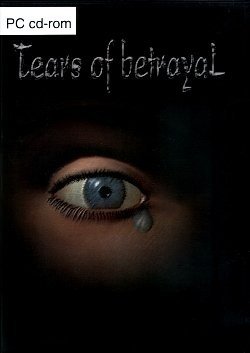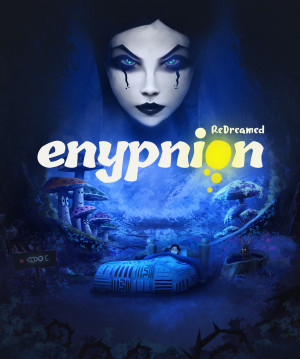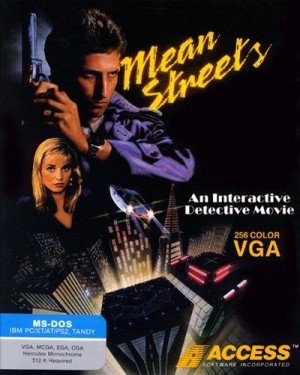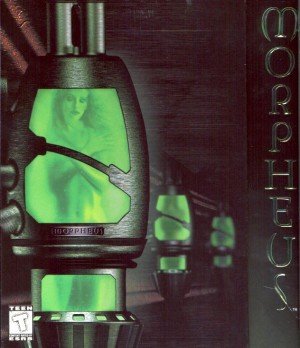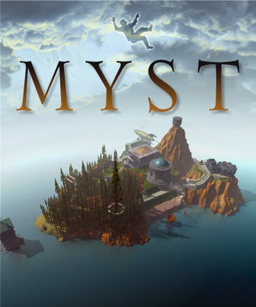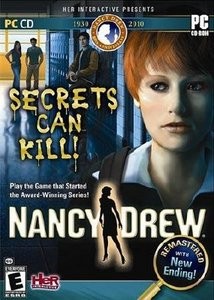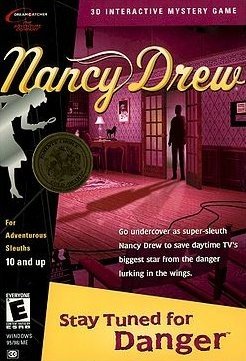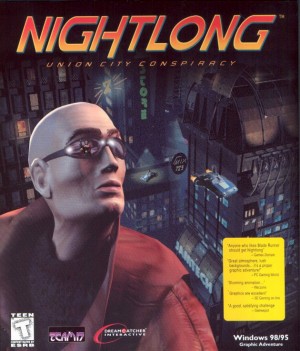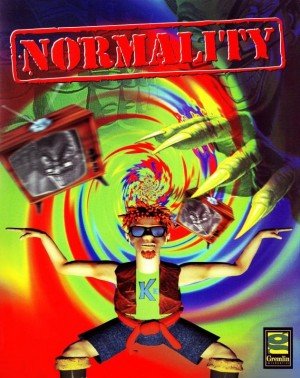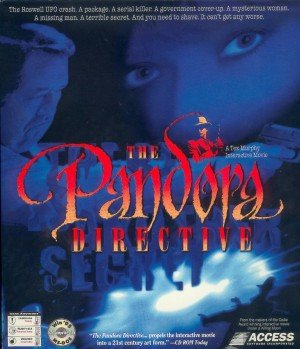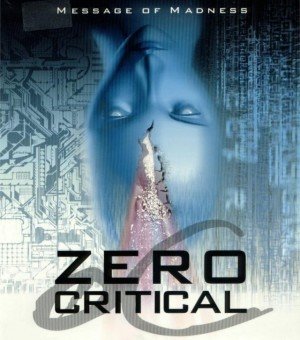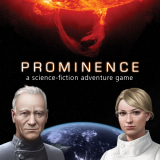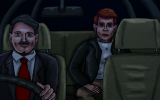Review for Tears of Betrayal
Nostalgia is a curious beast. Hearing about the old school points system in Tears of Betrayal, along with its combination of mouse and text input, brought back memories of hours spent playing the Police Quest games, so I was quite keen to review this new independent offering. Unfortunately, the game itself failed to recapture such fond memories, proving to be a tedious, broken and ultimately dull adventure that will leave players feeling nostalgic for the better, older games it seeks to emulate.
Tears of Betrayal gets off to a not unreasonable start. In the introductory cutscene, a woman is run over by a red sports car during the night. The main character, James, wakes up from his dream to discover a note on the pillow next to him, which mysteriously crumbles after being picked up and read. From this point the player takes control of James, and upon leaving the apartment, he encounters a man who reveals that his wife's hit and run was not an accident after all. Throughout the game, the player must help James find out what happened to his wife and seek out retribution.
Although there are a couple of memorable scenes -- the spooky spectacle that awaits you upon returning to your apartment is genuinely unnerving and unexpected -- the plot never really gets going, and just when you think things are about to heat up, the game is nearing its conclusion. Basic areas of the story are never fully expanded upon, such as what the wife was doing out late at night, and how the man outside your apartment knows about the accident. Nor is the background of the characters ever delved into. You never know what the wife is like, or even James for that matter, so it's difficult to care about solving the mystery. People you meet consist of shopkeepers, a fortune teller, strangers in the street and gang members, but none of them have any personality or anything interesting to say.
Visually, Tears of Betrayal looks pretty bland, although it's clear that a lot of effort has gone into creating its 3D world filled with buildings and well-stocked shops. Although the backgrounds look decently constructed, they are basic in appearance and look very much like they haven't had any finishing touches. The sky and settings in general are very hazy, and while this is probably meant to generate atmosphere, the reality is that everything is rather dull and depressing. Background music is at least pleasant, with some gentle jazz tunes playing that are inoffensive without proving to be too exciting. Apart from some voices that take place during specific scenes, the rest of the dialogue is presented entirely through text.
One of the first things you will notice is the dual control system. Tears of Betrayal offers the ability to use a point-and-click interface, with the left button moving the character and the right bringing up a list of possible verbs to use on the desired object/character. The other control system enables you to type in commands and use the arrow keys to move James around. Offering gamers a choice of control method is great in theory, but in reality, both systems are flawed. Within the first few minutes of the game, I struggled immensely to get James to actually leave the room. Clicking on the door would make him walk to it and not through it, requiring constant clicking all over to find the correct spot that would enable James to enter the next room. The text parser tends to work better, as it's more accurate than the mouse, although controlling James with the arrow keys is not terribly responsive.
Other interface quirks also present themselves before long. For example, right clicking on items and then right clicking again to interact with a particular item or person feels unnatural when there is a left mouse button that's just as handy but underused. There are also an overwhelming number of verbs included. While more variety could have been interesting, scanning through the entire list for each action gets awfully repetitive when many verbs such as wear, jump, and drink are only used once or twice. And unlike many games which allow the main character to walk quickly when double clicking, Tears of Betrayal offers no such ability, and considering you have to walk from one place to another quite regularly, movement get tedious before long.
Unfortunately, there are just as many problems with the game environment. Walking past a sign can result in James getting stuck, resulting in having to reload a previous saved game. At times it is possible to walk through closed doors and other such annoying glitches. One frustrating error occurred when I opened a cabinet door, which caused the whole screen to go black and prevent the possibility of closing it or moving away. Interacting with objects also requires pixel-perfect positioning. You may be told that you have to move nearer to a door in order to open it when in fact the main character is standing next to it. The developers have released a patch for the game that corrects some of the game's technical difficulties, though not all, so while it's definitely recommended to apply the patch before playing, you'll likely still encounter some problems along the way.
There are a couple of instances where it is possible to die. Crossing the road away from the designated paths involves being hit by a car (although this is worth doing at least once for sheer comedy value) and it is possible to be killed by a tattooist if you don't have enough money, but otherwise you are free to explore unless the scenery happens to get in the way first. Unfortunately, there isn't always a warning as to when these moments will occur, so you'll undoubtedly find yourself reloading at some point, leaving you down a creek without a paddle if you didn't save recently.
Control difficulties and glitches aside, Tears of Betrayal could be saved from mediocrity if the puzzles were memorable, but regrettably the developers resorted to repetition to pad out the gameplay. Puzzles usually consist of talking to the relevant person and then bringing them the desired object, which in most cases have to be bought. Of course, this requires money, and apart from receiving a sizable amount on a single occasion, the rest of the time you'll have to earn it by participating in one of the three gambling games.
The first is a card game involving the higher and lower principle. You have to guess whether the next card dealt will be higher or lower than the current card. Reaching the half-way point involves getting your money back, and then if you guess accurately five times in a row, you receive double the bet amount. Unfortunately, it's all down to a matter of luck and it is possible to continuously lose.
The second game is the equivalent of Blackjack, where the player or dealer must have a hand of 21 or under, with the highest winning. This game is only available once you have a certain amount of money in your possession, so as a result the stakes are much higher. Finally there is a dice game, where two die have to be thrown by both the dealer and player, with the highest number winning the bet. While the latter is the easiest to win, it requires the biggest minimum bet, so you have to play a lot of the previous two games in order to unlock it.
The problem with the minigames isn't their inclusion, but the ridiculous number of times you have to play them in order to earn enough money to progress. At one point, you have to earn over $120 just for one "puzzle", and given the limited amount of money that you've had to gain up to that point, it's really quite despairing. It took about four or five hours of playing these games, constantly using the save and reload method, and when you consider that the entire adventure is only seven or eight hours in length, the balance is severely skewed against actual puzzles. Although there are a couple of inventive puzzles that neither involve card games nor playing delivery boy, there just aren't enough of them to make gameplay more interesting. Experimenting with different things will boost your overall points (such as jumping on a certain car, for example) and although these are optional and slightly pointless, they do offer the player other avenues to explore. Given the tedious state of the main adventure, however, it's debatable whether you'll want to go back and try out every eventuality.
Tears of Betrayal is the first effort from indie developer Frixx-iT, and while their inexperience clearly shows, there is certainly something here for the team to build on. The option of a dual control system is a good idea, and the points system with optional activities is a nice throwback to older traditional adventures. Unfortunately, the overall game seems a wasted opportunity. Its promising plot that never delivers, the lack of character development, the excessive amount of gambling required to progress and broken interface issues ruin what could have been a much better adventure. Had the game been a freeware release, it would have been easier to recommend giving it a try, but as a commercial release, it just can't compete with even the better independent games on the market. However, for those interested in checking the game out, it's available directly from the developer's website, where you can download a demo to see for yourselves.


